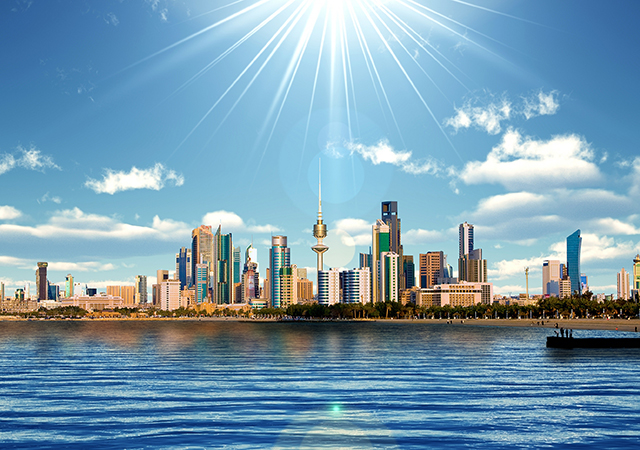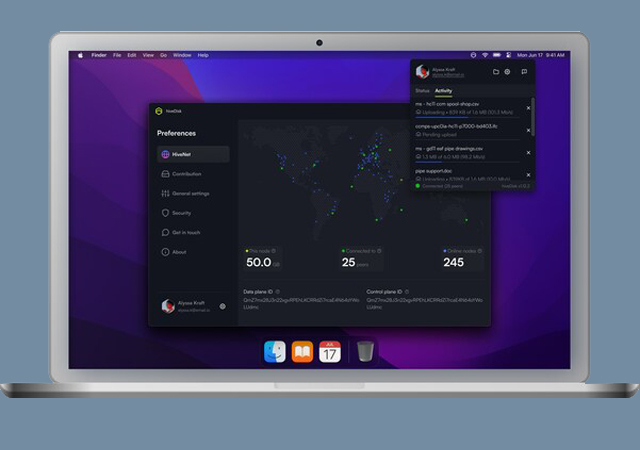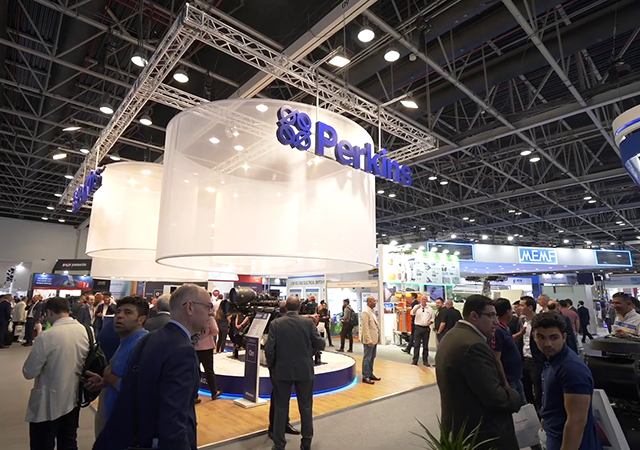
 A Garmco production facility in Bahrain
A Garmco production facility in Bahrain
ISSUES related to the aluminium downstream will be inescapable when CEOs and senior officials of regional aluminium smelters and firms relying on the smelters for their raw materials meet at the Arab Aluminium (Arabal) conference taking place in Bahrain this month (November 25-27).
Gulf smelters are keen they support downstream operations to the extent possible while maintaining a healthy proportion of exports to add shareholder value.
Ma’aden, the newest Gulf smelter that will have an integrated operation, has vowed support for the downstream and in fact issued a brochure outlining opportunities for investors in that stream. Investors were invited to look closely for prospects in aluminium foil, foundry alloys, wheels and casting, composite panels, forgings, industrial extrusions, circles, welding wire and powder.
Maa’den Rolling Company at Ras Az Zawr, is already in operation and will be producing food-grade can sheet metal.
Gulf Aluminium Rolling Mill Company (Garmco) of Bahrain has announced it is expanding its production capacity following Alba’s move to set up its sixth potline. The company is installing a new casting facility to add 120,000 tonnes to the mill’s current capacity of 165,000 tonnes annually.
Garmco is unfazed by new competitors in the region. “Fortunately, these new entrants will target different markets and different product ranges. Garmco mainly specialises in producing high-quality rolled aluminium products with various sizes and alloys including circles, sheets and coils,” general manager Graham Bruce said recently. Garmco products are used in a wide range of applications from food containers and stylish up-market hollowware to high-profile architecture and the paint industry.
The company draws much of its raw materials from Alba just as several other Bahrain companies do including Midal Cables, Bamco and Bahrain Aluminum Extrusions Company.
ALBA’S SUPPORT
“Since the start-up of Alba in 1971 in Bahrain, the government’s decision was to focus on developing the downstream and build a strong diversified aluminium market with a different product mix depending on market requirements such as liquid metal, rolling slabs, billets, and ingots. Economically, as Alba developed, it led to the growth and development of Bahrain’s downstream aluminium industry,” recalls Alba CEO Tim Murray.
“Today, Bahrain has a very well-developed downstream industry, where aluminium exports represent 65 per cent of the country’s non-oil exports. Hence, we can say that the aluminium industry’s contribution to Bahrain economy is quite substantial. Due to its technical strength and high quality of aluminium supplies, Alba has made an outstanding contribution to the local downstream, and Bahrain’s economy. Over the years, the downstream industry has led to the creation of many jobs for the nationals and increased the export rate with semi-finished products, in addition to the primary raw material from Alba.”
Alba has implemented numerous cost-saving strategies, which not only enhance the company’s productivity but also support small and medium enterprises (SMEs) in the kingdom, he said.
LARGE SCALE OPERATION
“In comparison to other GCC smelters, Bahrain’s downstream operates at a very large scale and is a role model in the region. As the first country to develop an aluminium sector, Bahrain is well-placed to build on its existing knowledge, expertise and reputation,” Murray commented.
“Bahrain’s downstream is a critical part of the Alba’s strategy and. at present, more than 50 per of its production is the base load of the operations. Alba’s priority is to always first fulfil its commitments to the kingdom’s downstream customers and then analyse our casting capacity to determine the best export markets to serve in order to maximise the value to Alba’s shareholders.
“In time, if Alba’s Line 6 becomes operational, local and regional affiliates companies are likely to expand their production capacities and marketing capabilities. This scenario will create a ‘domino’ economic effect that will provide a tremendous impetus to the downstream Gulf industries, thus adding to the economy of the nation. For instance, Midal is looking at introducing other aluminium engineering projects using molten aluminium when Alba’s capacity increases.
“With the additional capacity of approximately 400,000 metric tonnes per year once Line 6 is on stream, Alba will be looking to allocate a major share to the downstream in Bahrain. This would be for both existing customers as well as new potential investors, which Mumtalakat is trying to partner with as part of its plans to further develop Bahrain’s economy.”
UAE ACTIVE
The UAE is fast developing its own downstream with Gulf Extrusions, Emirates Extrusions Factory and Taweelah Alumium Extrusion Company among the well-known operations in existence.
Recently, UAE Royal Engineering Fabrication Company (Refco), a fully-owned subsidiary of the Al Ghurair Group supplying fabricated components to the automotive, non-automotive and architectural sectors, opened its new aluminum plant at the Jebel Ali Industrial Area in Dubai.
An aluminium rod mill is coming up in Khalifa Industrial Zone Abu Dhabi.
Abdulla Kalban, managing director, Emirates Global Aluminium, after recounting smelter capacity expansions in progress in the Gulf, remarked: “The downstream aluminium industry is also expanding, thanks to strong progress in local infrastructure development, increasing demand in international markets and the pro-active development of aluminium clusters, The growth of both sectors heralds more job creation opportunities, which will contribute further to the social and economic development of the region.”
OMAN, QATAR GROWING
In Oman, Sohar Aluminium will allocate more than 50 per cent of its hot metal to local companies in three years. Companies benefiting include Oman Aluminium Processing Industries, maker of cables and wires, Oman Aluminium Rolling Company, manufacturer of coil products, and National Aluminium Products Company, which produces profiles for industries including construction.
Qatalum, the Qatari producer of primary aluminium, has pledged to support the downstream all the way. It has signed permanent contracts with at least two prominent local downstream companies Al Noor Aluminium Extrusion and Qatar Aluminium Extrusion.
“Qatalum sees investing in Qatari industry as a key part of its responsibilities under Qatar’s National Vision 2030, and its vision for the development of the regional aluminium sector,” a company statement said.














